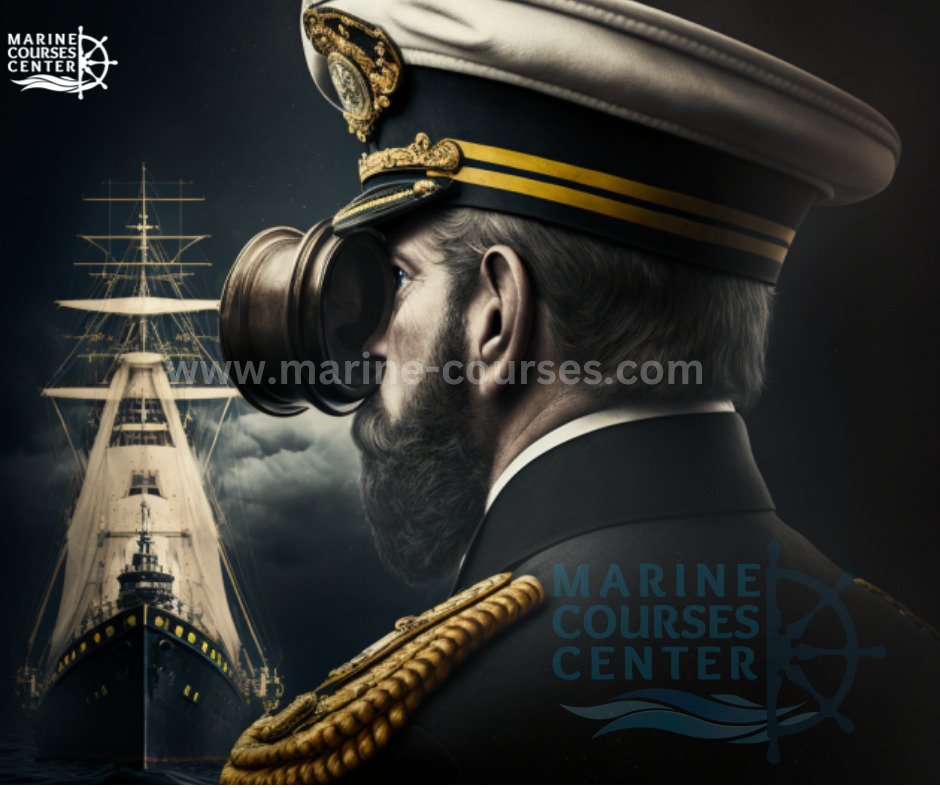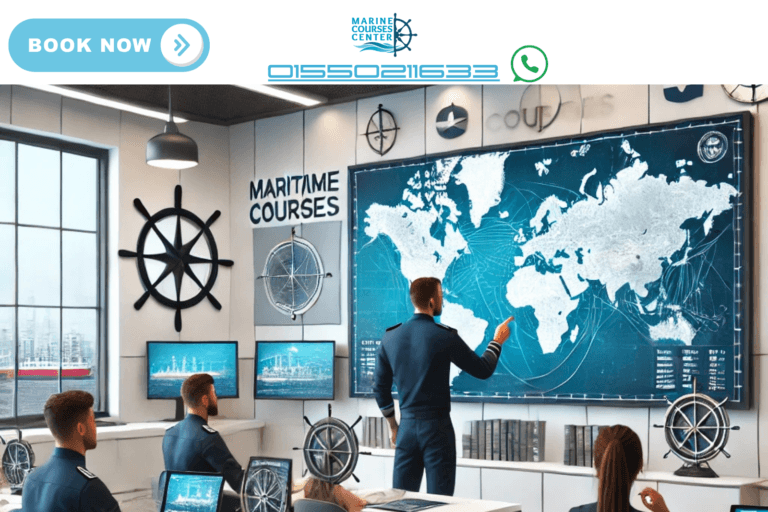
Table of Contents
Definition of Watchkeeping Arrangements: Ensuring Safe Navigation at Sea
Watchkeeping arrangements refer to the measures put in place to ensure that a vessel is safely navigated while at sea. These arrangements are critical to ensuring the safety of the crew, passengers, cargo, and the environment. This article will explore the various aspects of watchkeeping arrangements, including their definition, their importance, and the regulations governing them.
What are Watchkeeping Arrangements?
Watchkeeping arrangements are the procedures and practices that ensure a vessel is safely navigated while at sea. This includes the tasks that the crew performs to maintain a safe and secure environment on board the vessel. These tasks include navigating the vessel, monitoring its systems and equipment, communicating with other vessels, and responding to emergencies.
The International Maritime Organization (IMO) has set guidelines for watchkeeping arrangements to ensure that they are implemented consistently across the shipping industry. These guidelines are based on the International Convention for the Safety of Life at Sea (SOLAS), which outlines the minimum requirements for safe navigation.
Why are Watchkeeping Arrangements Important?
Watchkeeping arrangements are essential to ensure the safety of the crew, passengers, and cargo on board a vessel. Without proper watchkeeping arrangements, a vessel is at risk of collision, grounding, or other accidents that can result in loss of life, property, and damage to the environment.
Additionally, watchkeeping arrangements are crucial for compliance with international regulations, including SOLAS and the International Convention on Standards of Training, Certification, and Watchkeeping for Seafarers (STCW). Compliance with these regulations is necessary for a vessel to operate legally.
Regulations Governing Watchkeeping Arrangements
The IMO’s SOLAS convention provides the minimum requirements for watchkeeping arrangements. These requirements include:
Minimum number of crew members on watch
SOLAS mandates that a sufficient number of qualified crew members must be on watch at all times to ensure the safe navigation of the vessel.
Watch schedules
SOLAS requires that watch schedules be established to ensure that the crew is well-rested and able to perform their duties effectively. The watch schedule must include a minimum of two crew members on watch at all times.
Navigational equipment
SOLAS requires that vessels be equipped with appropriate navigational equipment, such as radar, GPS, and charts, to ensure safe navigation.
Communication equipment
SOLAS mandates that vessels be equipped with appropriate communication equipment, such as radios and satellite phones, to enable effective communication with other vessels and shore-based authorities.
Emergency procedures
SOLAS requires that emergency procedures be established and communicated to the crew to ensure that they can respond effectively in the event of an emergency.
Implementation of Watchkeeping Arrangements
The implementation of watchkeeping arrangements is the responsibility of the vessel’s owner, operator, and crew. The owner and operator must ensure that the vessel is equipped with appropriate navigational and communication equipment and that the crew is adequately trained to perform their duties effectively.
The crew must follow established procedures and practices to maintain a safe and secure environment on board the vessel. This includes maintaining a proper lookout, monitoring the vessel’s systems and equipment, and responding to emergencies in a timely and effective manner.
Additionally, the crew must maintain proper records of their activities, including the vessel’s position, speed, and course, as well as any communications with other vessels or shore-based authorities.
Conclusion
Watchkeeping arrangements are critical to ensuring the safety of vessels at sea. These arrangements encompass a range of procedures and practices, including navigation, equipment monitoring, communication, and emergency response. Compliance with international regulations, including SOLAS and STCW, is necessary for vessels to operate legally and safely. By following established procedures and practices, vessel owners, operators, and crews can ensure the safe navigation
Importance of having adequate watchkeeping arrangements
As maritime industries continue to expand globally, the need for adequate watchkeeping arrangements has become increasingly crucial. Watchkeeping is an essential aspect of maritime safety and involves ensuring that a vessel is operated safely and efficiently at all times. This article explores the importance of having adequate watchkeeping arrangements in place to promote maritime safety.
What is Watchkeeping?
Watchkeeping is a term used in the maritime industry to describe the process of monitoring a vessel’s operations, systems, and equipment to ensure that they are functioning correctly. The primary objective of watchkeeping is to maintain the safety of the vessel, crew, and cargo while ensuring that the vessel is operated efficiently and effectively.
The Importance of Adequate Watchkeeping Arrangements
Adequate watchkeeping arrangements are essential for the following reasons:
1. Safety of the Vessel and Crew
The safety of the vessel and crew is the most crucial aspect of watchkeeping. Adequate watchkeeping arrangements ensure that the vessel is operated safely, and all crew members are aware of their duties and responsibilities. Proper watchkeeping ensures that the crew can quickly identify and respond to potential hazards, which can prevent accidents and minimize damage to the vessel.
2. Compliance with International Regulations
Adequate watchkeeping arrangements are necessary to comply with international maritime regulations. International regulations require that vessels maintain a proper lookout, and adequate watchkeeping arrangements ensure that vessels comply with these requirements. Compliance with international regulations is essential to avoid penalties, fines, and other legal consequences.
3. Prevention of Accidents and Environmental Damage
Adequate watchkeeping arrangements can help prevent accidents and environmental damage. Vessel collisions, grounding, and other accidents can have severe environmental consequences. Adequate watchkeeping arrangements ensure that the crew can identify and respond to potential hazards before they escalate into accidents, minimizing environmental damage.
4. Efficient Operations
Adequate watchkeeping arrangements ensure that vessels operate efficiently. Proper watchkeeping allows crew members to monitor the vessel’s systems and equipment, enabling them to identify and address issues before they become significant problems. Efficient operations can help reduce fuel consumption, improve voyage times, and increase profitability.
Requirements for Adequate Watchkeeping Arrangements
Adequate watchkeeping arrangements require a combination of training, procedures, and equipment. The following are essential requirements for adequate watchkeeping arrangements:
1. Proper Training
Crew members responsible for watchkeeping must receive proper training. Training should include identifying and responding to potential hazards, monitoring systems and equipment, and communicating with other crew members.
2. Clear Procedures
Clear procedures must be in place for watchkeeping. Procedures should include duty rosters, standing orders, and emergency response plans.
3. Suitable Equipment
Suitable equipment must be available for watchkeeping. Equipment should include navigational aids, communication systems, and monitoring equipment.
Conclusion
Adequate watchkeeping arrangements are essential to promote maritime safety. Proper watchkeeping ensures that vessels are operated safely and efficiently, preventing accidents, minimizing environmental damage, and complying with international regulations. Adequate watchkeeping arrangements require proper training, clear procedures, and suitable equipment.
FAQs
- What is watchkeeping in the maritime industry? Watchkeeping is the process of monitoring a vessel’s operations, systems, and equipment to ensure that they are functioning correctly.
- Why is watchkeeping important in the maritime industry? Watchkeeping is important to ensure the safety of the vessel, crew, and cargo, comply with international regulations, prevent accidents and environmental damage, and operate vessels efficiently.
- What are the requirements for adequate watchkeeping arrangements? Adequate watchkeeping arrangements require proper training, clear procedures, and suitable equipment.
- What are the consequences of inadequate watchkeeping arrangements?
Master’s responsibility to ensure adequate watchkeeping arrangements
Watchkeeping is a crucial aspect of vessel operation as it ensures the safety of the ship, crew, and cargo. It is the responsibility of the master to ensure that adequate watchkeeping arrangements are in place throughout the voyage. In this article, we will discuss the master’s role in ensuring adequate watchkeeping arrangements and why it is essential for the safe and efficient operation of the vessel.
Introduction
Watchkeeping is the practice of maintaining a continuous lookout to prevent collisions, groundings, and other incidents. It involves monitoring the vessel’s surroundings, monitoring the vessel’s equipment, and performing routine tasks to ensure the safe and efficient operation of the vessel. The responsibility for watchkeeping falls on the master and the watchkeeping personnel.
Understanding Watchkeeping
Watchkeeping is a critical aspect of vessel operation and involves monitoring the vessel’s position, course, and speed, as well as other ships, navigation aids, weather conditions, and any other factors that may affect the vessel’s safe navigation. The master must ensure that watchkeeping personnel are adequately trained and familiar with the vessel’s equipment and operating procedures. The watchkeeping personnel must maintain a vigilant watch and report any irregularities or hazards immediately to the master.
Master’s Role in Ensuring Adequate Watchkeeping Arrangements
The master has a crucial role in ensuring that adequate watchkeeping arrangements are in place throughout the voyage. The master must ensure that the vessel is manned with an adequate number of watchkeeping personnel and that they are appropriately trained and certified for their duties. The master must also ensure that the watchkeeping personnel are following the vessel’s standard operating procedures and are familiar with the vessel’s equipment and systems.
Factors to Consider for Adequate Watchkeeping Arrangements
Several factors must be considered when planning adequate watchkeeping arrangements. These factors include the vessel’s size, type of cargo, route, weather conditions, and traffic density. The master must also consider the experience and qualifications of the watchkeeping personnel and ensure that they are appropriately rested and alert during their watch.
Benefits of Adequate Watchkeeping Arrangements
Adequate watchkeeping arrangements have several benefits, including the prevention of collisions, groundings, and other incidents that may cause damage to the vessel, crew, or cargo. Proper watchkeeping also promotes the safe and efficient operation of the vessel, reduces the risk of environmental pollution, and ensures compliance with international regulations and guidelines.
Common Watchkeeping Mistakes
Several common mistakes can lead to inadequate watchkeeping arrangements, including fatigue, distraction, complacency, and inadequate training. The master must take steps to prevent these mistakes from occurring and ensure that the watchkeeping personnel remain alert and vigilant during their watch.
Consequences of Inadequate Watchkeeping Arrangements
Inadequate watchkeeping arrangements can have severe consequences, including collisions, groundings, pollution incidents, and loss of life. The vessel owner may also face legal liability for any damages resulting from inadequate watchkeeping arrangements.




1 Comment